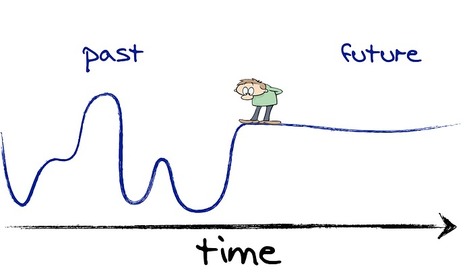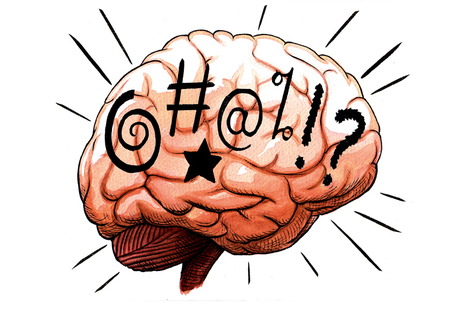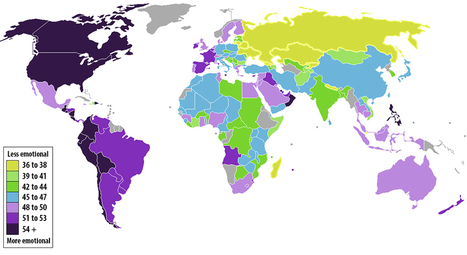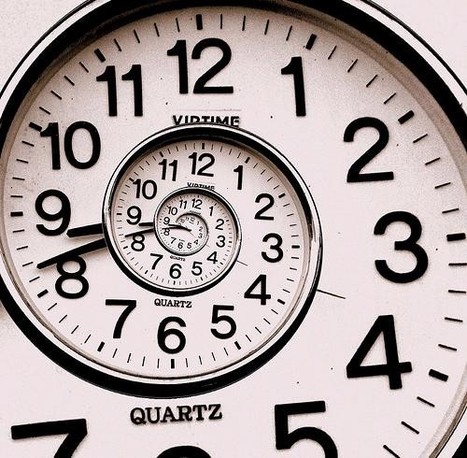A new study provides tentative support for this idea. Marjaana Lindeman and her colleagues report that atheists get just as stressed as religious people when they ask God to do nasty things, as in "I dare God to make someone murder my parents cruelly."
Get Started for FREE
Sign up with Facebook Sign up with X
I don't have a Facebook or a X account


 Your new post is loading... Your new post is loading...
 Your new post is loading... Your new post is loading...
In an analysis of the data of 300.000 players of an online game society, Michael Szell and Stefan Thurner found that women have more communication partners. They also reciprocate friendships, organize in clusters, take fewer risks than men and show a preference for stability in their networks. On the contrary, men try to talk most often with those who talk with many, reciprocate friendships with other males much less frequently, and respond quite quickly to female friendship initiatives. They also tend to have less cooperative links with other males, which indicates a more competitive approach.
Gary Sherman and his colleagues have published research showing how prudish disgust-sensitivity is associated with a superior ability to detect impurities.
Sakis Koukouvis's insight:
"Disgust not only makes people want to avoid impurities but also makes people better able to see them"

Theresa Liao's curator insight,
December 13, 2012 8:52 PM
The placebo effect is an interesting area of study. Personally, what's weird to me is that even though I am aware of the effect, that brand name ibuprofen and generic ibuprofen are pretty much the same, I cannot take generic ibuprofen tablets because they don't work on me (after several attempted I simply gave up and just stuck with brand name).
This video shares some interesting aspects of placebo effects. 
Sakis Koukouvis's comment,
December 14, 2012 2:33 AM
Oh, yes it's weird. It's a kind of mind's power.
Under threat of violence, we have a natural instinct to stick together. Researchers say this basic urge explains their seemingly odd observation that feeling threatened, rather than making people bristle, can actually increase their agreeableness.
Humans can smell fear and disgust, and the emotions are contagious, according to a new study. The findings, published Nov. 5 in the journal Psychological Science, suggest that humans communicate via smell just like other animals.
What could most of us could do to chill out and expand our subjective sense of time? Feel a sense of awe more often! Rudd et. al. do a series of experiments illustrating that it expands our perception of time, alters decision making, and enhances well-being.
When you make people feel like they’re not a productive part of society they’re more likely to become an unproductive part of society.
hennessy vargas's curator insight,
March 24, 2015 12:21 AM
Automatically. immigrants already are put down by society and have to work twice as hard to prove themselves or to be successful.
When people consume information in a difficult-to-read font, they are likely to form a more moderate opinion of the information they have read, suggests a study just published in the Journal of Experimental Psychology.
Habits are behaviors wired so deeply in our brains that we perform them automatically.
Psychologists claim that your sleeping habits may reveal the truth about your love life. |
Study finds that people believe they’ll be happy in the future, even when they imagine the many bad things that could happen, because they discount the possibility that those bad things will actually occur.
Why do people so often make decisions that their future selves regret? One possibility is that people have a fundamental misconception about their future selves. Time is a powerful force that transforms people’s preferences, reshapes their values, and alters their personalities, and we suspect that people generally underestimate the magnitude of those changes. In other words, people may believe that who they are today is pretty much who they will be tomorrow, despite the fact that it isn’t who they were yesterday. More: http://mindblog.dericbownds.net/2013/01/the-end-of-history-illusion.html
How our modular brains lead us to deny and distort evidence
Sakis Koukouvis's insight:
There is no unified “self” that generates internally consistent and seamlessly coherent beliefs devoid of conflict. Instead we are a collection of distinct but interacting modules often at odds with one another.
Placebo, the positive effect of a drug that lacks any beneficial ingredients, has been researched for centuries but remain a mystery for psychologists and neuroscientists alike.
Not to be outdone by "runner's high", music has been found to increase endorphins and increase a body's threshold for pain.
If you’re struggling to keep your self-control on track, keep a bottle of lemonade made with real sugar handy. You won’t have to drink it, just swish and gargle when you’re feeling like giving up. That’s the finding of new research published in the journal Psychological Science.
Evidence persists in the psychological literature that people's bodies sometimes unconsciously "predict" unpredictable future events. These visceral responses don't appear to be the result of sheer chance.
Many children spontaneously report memories of 'past lives'. For believers, this is evidence for reincarnation; for others, it's a psychological oddity. But what happens when they grow up?
Contrary to popular perception, stressors don't cause health problems -- it's people's reactions to the stressors that determine whether they will suffer health consequences, according to new research.
Research has shown that our perceptual system seems to pull causally-related events together – compared to two events that are thought to happen of their own accord, we perceive the first event as occurring later if we think it is the cause and we perceive the second event as occurring earlier if we think it is the outcome.
Habits are behaviors wired so deeply in our brains that we perform them automatically. This allows you to follow the same route to work every day without thinking about it, liberating your brain to ponder other things, such as what to make for dinner.
However, the brain's executive command center does not completely relinquish control of habitual behavior. |
































